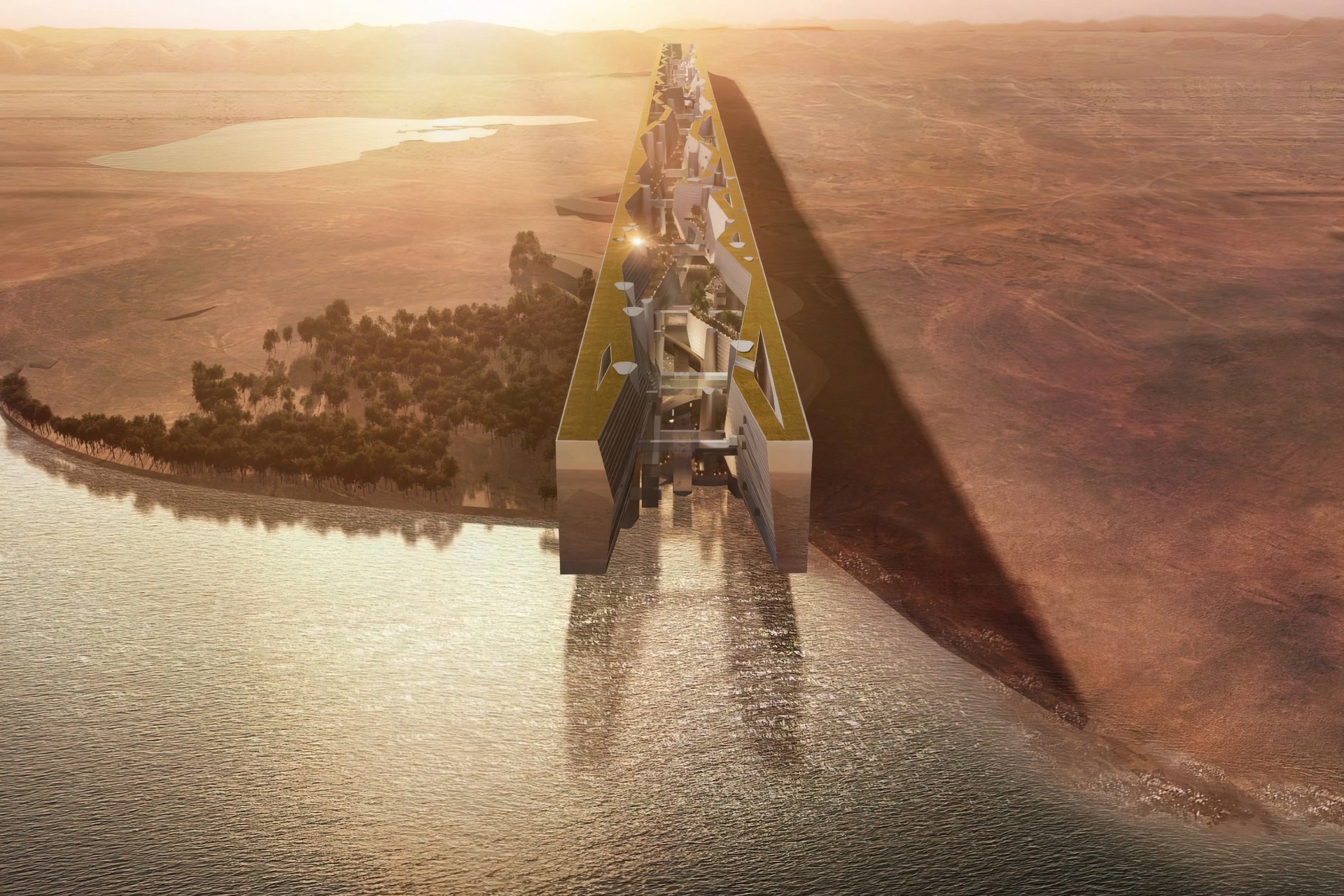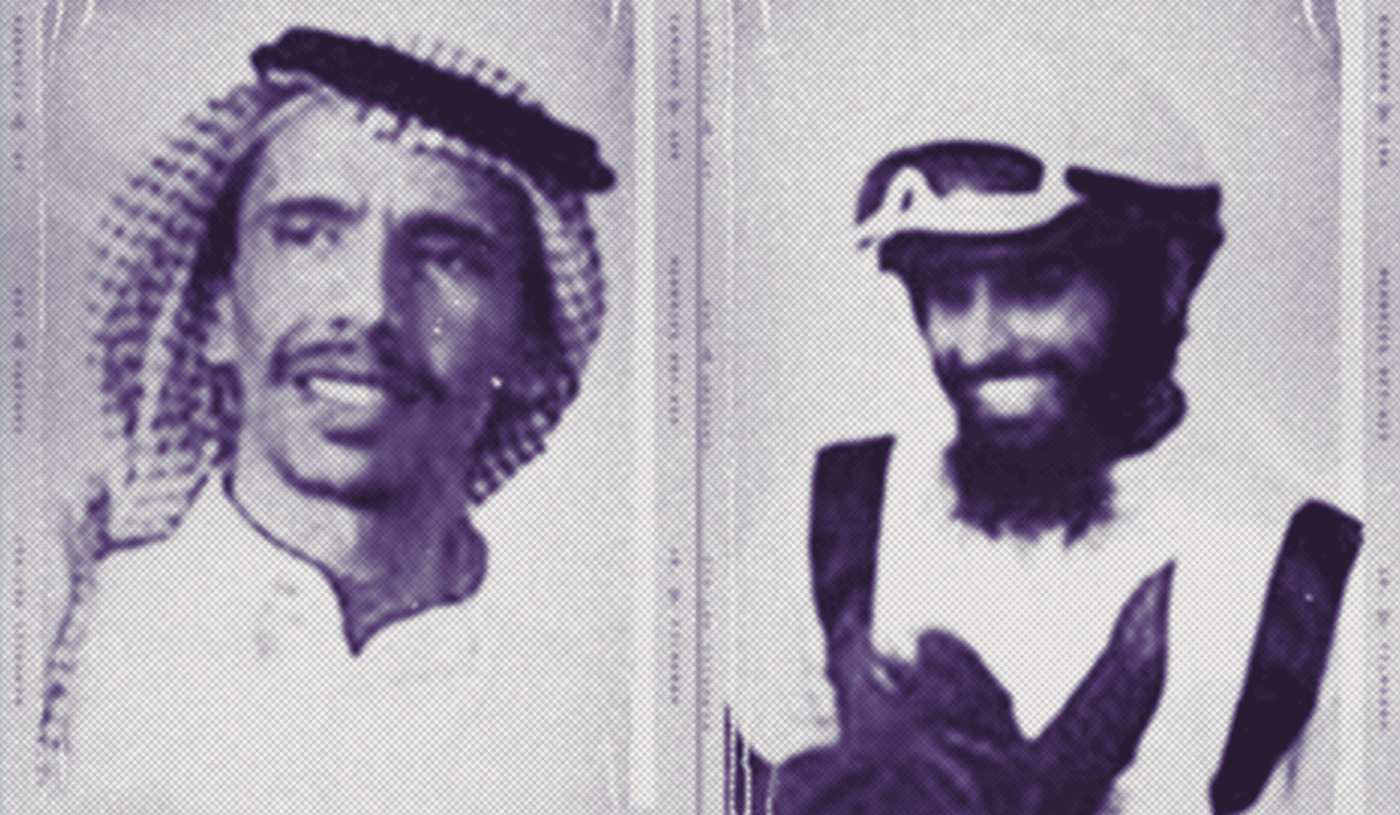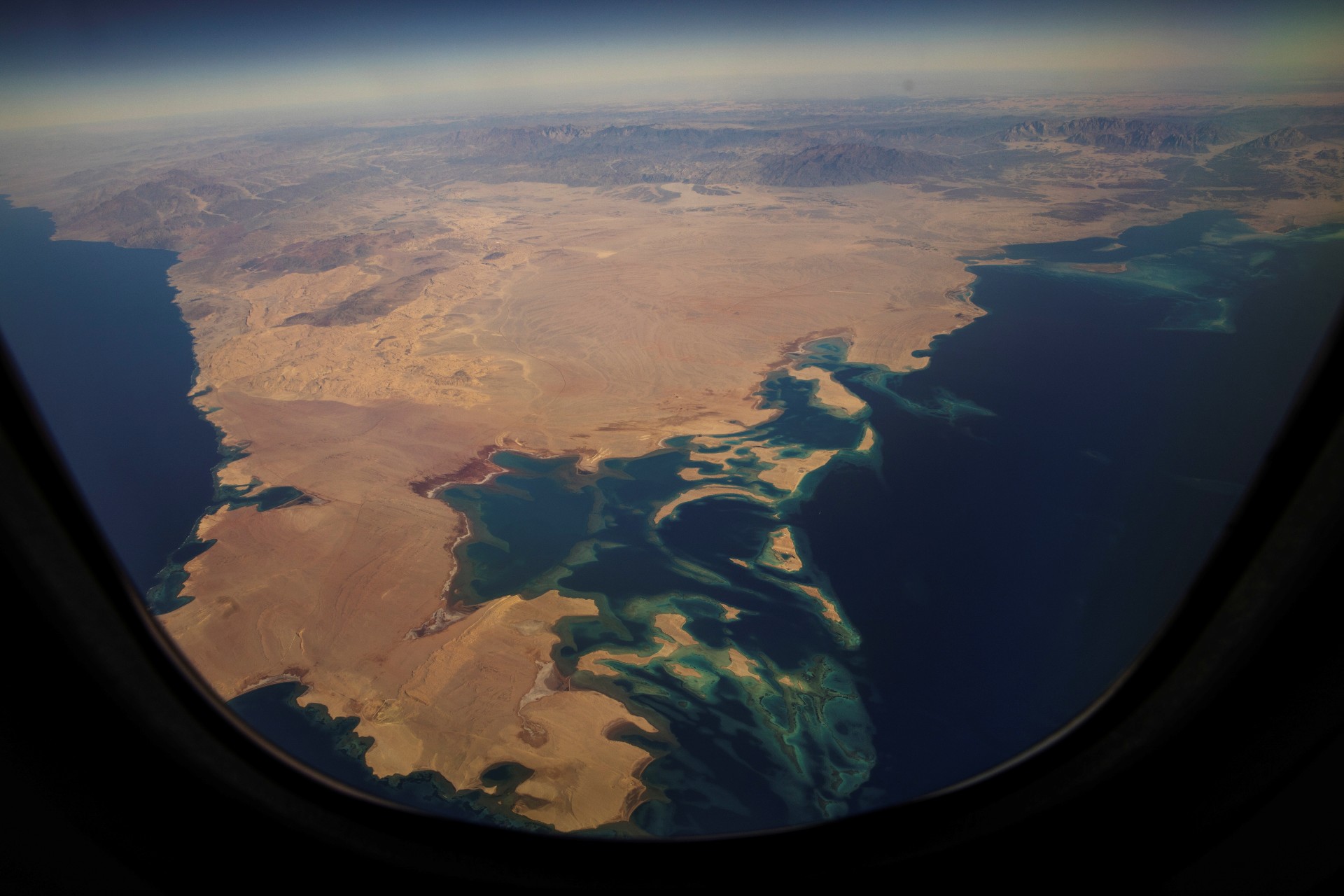Neom: Saudi Arabia jails tribesmen for 50 years for rejecting displacement

Two members of the Howeitat, a tribe in Saudi Arabia forcibly displaced to make way for the $500bn Neom megacity, have received lengthy sentences over their protests against the project, a UK-based rights group has reported.
Abdulilah al-Howeiti and his relative, Abdullah Dukhail al-Howeiti, were both handed a 50-year prison term and 50-year travel ban for supporting their family's refusal to be forcibly evicted from their homes in the Tabuk province of northwestern Saudi Arabia, according to Alqst.
The rulings in their cases, made by the Specialised Criminal Court of Appeal in August, come among a raft of similarly long sentences handed down by Saudi courts this summer.
Stay informed with MEE's newsletters
Sign up to get the latest alerts, insights and analysis, starting with Turkey Unpacked
Two women - Salma al-Shehab, a Leeds University student and mother of two, and Nourah bint Saeed al-Qahtani, a mother of five - were given 34 years and 45 years respectively over tweets critical of the Saudi government. Osama Khaled, a writer, translator and computer programmer, was sentenced to 32 years over "allegations relating to the right of free speech", Alqst said last week.
Unverified reports have suggested a Saudi court also recently sentenced a third member of the Howeitat to a lengthy sentence.
"The lengthy prison sentence handed [out] against members of the Howeitat tribe follow a dangerous pattern we are seeing unfold in Saudi Arabia," Ramzi Kaiss, legal and policy officer at MENA Rights Group, told Middle East Eye.
Kaiss said that since US President Joe Biden's visit to Saudi Arabia in July, there had been a "more repressive approach by the Saudi state security and judicial authorities against individuals exercising their right to freedom of speech".
Lina al-Hathloul, Alqst's head of monitoring and communications, said: "This is becoming a new trend. No one will be saved from this. I think that anyone who gets arrested now will be handed a lengthy sentence."
'They are being watched'
Plans for Neom were first announced by Crown Prince Mohammed bin Salman in 2017, when he promised a futuristic city would be built on Saudi Arabia's northwest coast.
So far, little has been constructed, but large sums have been paid to consultants and increasingly outlandish plans revealed. Yet Saudi authorities have sought to clear areas along 170km of Tabuk province of its residents, many of whom belong to the Howeitat tribe.
Displaced tribespeople are reported to have been given up to 1 million riyals ($266,000) compensation for owners of large properties and 100,000 riyals ($27,000) for those with smaller homes. However, MEE has previously been told displaced Tabuk residents are more often handed sums of around $3,000.
Since December, Howeitat tribespeople have reported the Saudi authorities' campaign to drive them from their land has escalated. New measures include cutting water and electricity supplies, and deploying surveillance drones above residences, MEE has been told.
The newly sentenced tribesmen are among 150 Howeitat who have been imprisoned over their resistance to the Neom project, according to Alya al-Howeiti, a UK-based activist who is a member of the tribe.
She said detained members include the relatives of Abdul Rahim al-Howeiti, a 43-year-old Tabuk resident who was shot dead by Saudi special forces in April 2020 after protesting the government's eviction orders, including in videos he regularly posted to YouTube.
Saudi forces alleged he opened fire and they were forced to retaliate, which tribe members have vigorously denied.
One of Abdul Rahim's brothers is in prison and has been on hunger strike for the past month, Ayla al-Howeiti told MEE.
The government's new drive to surveil and evict the tribe began when a group of men were arrested in December for planning a peaceful protest, Ayla al-Howeiti said.
'The lengthy prison sentence handed against members of the Howeitat tribe follow a dangerous pattern we are seeing unfold in Saudi Arabia'
- Ramzi Kaiss, MENA Rights Group
"They were gathering and they heard a drone above them," she said. "Then in a couple of minutes, more than 50 jeeps came and arrested them."
Tribe members told her that drones are being flown regularly over Tabuk province, and that they believe their mobile phone and social media accounts are closely monitored.
“They are very terrified. Very, very terrified,” she said. “They are being watched. So even if they write anything anonymously, they would be arrested."
Ayla said her sources also told her that water and electricity has been cut off from an estimated 15,000 people in an attempt to force them from the region.
Western consultancies condemned
The new Saudi megacity - which organisers claim will be 33 times the size of New York City - is planned to include a 170km straight line city, an eight-sided city that floats on water, and a ski resort with a folded vertical village, among other grandiose and architecturally challenging projects.
The tribe and human rights groups have previously raised their concerns with the companies working on Neom, including an open letter to three consultancies shortly after Abdul Rahim's killing, calling on them to cease their engagement "unless and until" adverse human rights impacts were addressed.
MEE asked the same consultancies - Boston Consulting Group, McKinsey and Oliver Wyman - for comment on the continued allegations of human rights violations facing the Howeitat.
A Boston Consulting Group spokesperson said: “We do not comment about specific clients and projects to protect client confidentiality.” The other two companies did not respond.
"These companies should condemn the violations being committed and consider reassessing their involvement in projects that promote wide-scale human rights violations," said Kaiss.
"If violations are not addressed or mitigated, then these companies should responsibly halt their engagement in these projects and with the authorities promoting abuses, instead of causing further harm."
Saudi Arabia's government and Neom also did not respond to requests for comment.
Middle East Eye delivers independent and unrivalled coverage and analysis of the Middle East, North Africa and beyond. To learn more about republishing this content and the associated fees, please fill out this form. More about MEE can be found here.







